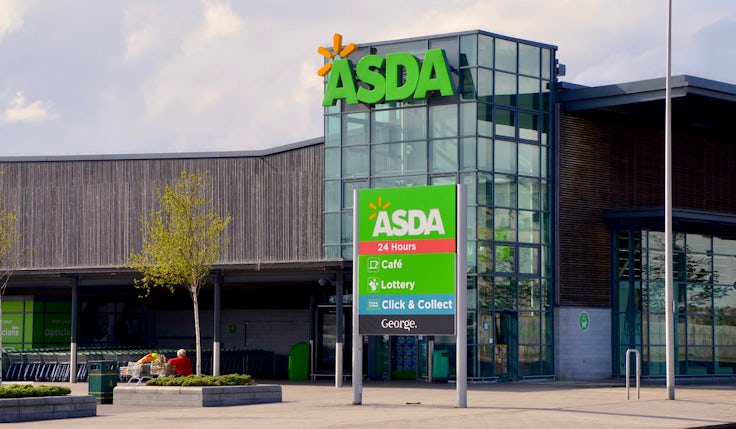Tesco outperforms festive market as Sainsbury’s hits six-year high
Grocery sales surpassed £13bn in December for the first time, with Tesco enjoying the biggest market share gains and Sainsbury’s claiming its largest share since 2019.
 Grocery sales surpassed £13bn in December for the first time ever, despite grocery price inflation being at its highest level since March 2024, according to the latest data from Kantar.
Grocery sales surpassed £13bn in December for the first time ever, despite grocery price inflation being at its highest level since March 2024, according to the latest data from Kantar.
Overall, take-home sales rose by 2.1% over the four weeks to 29 December compared to last year, as household spending hit a record average high of £460.
Tesco saw a 5% increase in sales – more than double the 2.2% growth registered across the total grocery market – taking its market share to 28.5% versus 27.7% in 2023. The retailer’s 0.8 percentage point share gain was the biggest rise seen by any supermarket.
Sainsbury’s achieved its highest share since December 2019 at 16% thanks to 3.5% sales growth, which outpaced the market. Morrisons’ sales increased by 0.4% to claim a market share of 8.6%.
The picture was not so bright for Asda, which experienced a 5.8% decrease in sales according to Kantar figures, causing its market share to fall to 12.5%. Likewise, Co-op sales fell 0.2%, taking its market share to 5.3%.
Aldi enjoys record Christmas as premium own-label sales soar
Aldi, which generated £1.6bn in sales over the four weeks to Christmas Eve, notched up a 2.9% sales rise to claim 10% market share, having attracted an additional 315,000 customers to its stores. Rival Lidl, which exceeded £1bn in turnover for the four weeks to 24 December, saw the fastest footfall growth of any retailer. Spending through its tills increased by 6.6%, taking Lidl’s market share to 7.3%.
Ocado boosted its sales by 9.6% over the 12 weeks to 29 December 2024, taking its overall share to 1.8%.
Compared to last year, Waitrose saw a 2.1% increase in sales, with its market share remaining at 4.6%, while Kantar figures show Iceland saw a 1% rise in sales (2.3% market share).
Marks & Spencer saw an 8.7% increase in food and drink spending driven by its core fresh and chilled range (up 9%) and ambient lines (up 11%) during the 12 weeks.
Changing dynamics
Head of retail and consumer insight at Kantar, Fraser McKevitt, describes the figures as representing a “solid Christmas” for the supermarkets.
“In contrast to reports of disappointing footfall across the rest of the high street, it was a very different story in the world of grocery,” he says. “The average household made nearly 17 separate shopping trips this December, delivering the busiest month for the retailers since the pre-lockdown rush in March 2020.”
As reported by Aldi and Lidl, Monday 23 December was the busiest day for shopping, with sales 30% higher than any other day.
Most shoppers chose to do some of their shopping online, with 5.6 million households opting for delivery or click-and-collect services on at least one occasion. Online spending totalled £1.6bn for the month.
As highlighted in Aldi’s festive results, the Kantar data finds sales for premium own-label lines jumped by 14.6%, with nine in 10 households buying at least one premium own-label product in December. Sales growth for branded products rose by 4.2%.
Sparkling wine and champagne were big sellers across the period, notching up sales growth of 4.4% to hit £187m across the month. A total of 7.4 million households bought a bottle of festive fizz, despite the average price per bottle being up 14p on last year.
Some 940,000 customers opted for low/no alcohol sparkling wine, while in general 11% of the population bought a low/no alcohol drink, up from under 10% in 2023.
Different demographics were seen to enjoy different products, with under 45s more likely to reach for sausage roles and panettones, with over 45s accounting for the majority of Christmas cake and fortified wine sales.
With more details to follow tomorrow (8 January), teaser stats from NIQ’s latest Total Till report also report 2024 was the “biggest ever” Christmas over the three weeks to 28 December, with shoppers spending £14.6bn – up 3% on 2023.
According to NIQ, over the month of December the market grew by 3.2%, fuelled by the highest level of promotions in three years, with 27% of sales purchased on deal.






